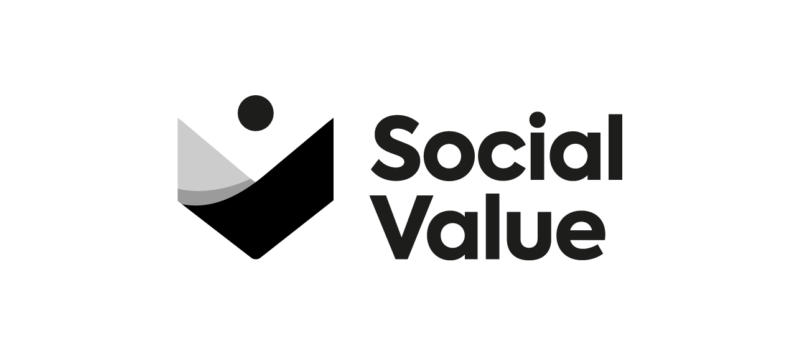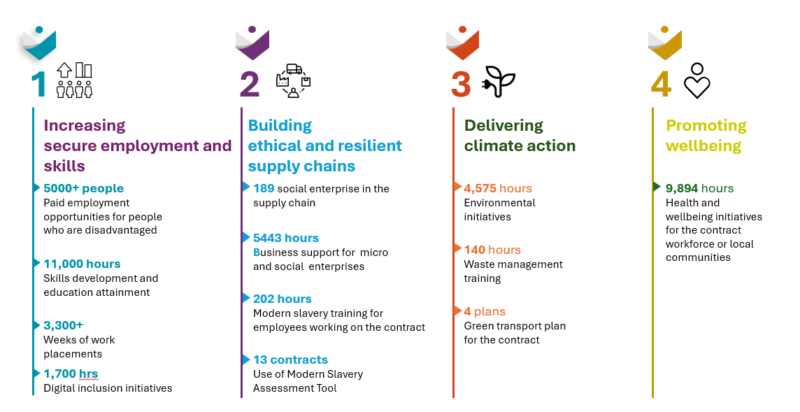
What is Social Value?
Social value refers to the wider financial and non-financial impacts on the wellbeing of individuals, communities and the environment.
It is widely acknowledged that taking a social value approach to procurement and commissioning can contribute positively to the delivery of greater equality and social inclusion, as well as broader sustainability goals.
The social value derived from a public contract is the positive legacy created through its performance such as a more diverse workforce, fewer single use plastics in the environment and more cohesive communities.
In simple terms, Social Value all about the positive impact an organisation has on society beyond its financial bottom line. While profit is tracked in traditional accounting terms, Social Value is measured by the actions an organisation takes to improve the world around it.
Social Value is a mandatory part of the public procurement landscape in NI
Social Value is a mandatory part of the public procurement landscape in NI
The Social Value in Procurement policy places social value at the very heart of public procurement. It creates a range of positive social, economic and environmental impacts, promoting the wellbeing of individuals, communities and the environment, and rewarding those companies that think socially and innovatively for the common good.
Procurement Policy Note PPN 01/21 mandates that from 24 February 2025, public sector tenders must allocate a minimum of 10% of the award criteria to Social Value in works contracts above the UK Procurement Threshold and in services contracts above £500,000 (inclusive of VAT). The current threshold for Construction works contracts £5,372,609.
Scoring is based on four broad themes which have delivered the following as of April 2025:

Meet your Social Value Requirements with a Broker
Brokers are organisations in Northern Ireland who work with people and communities to increase secure employment and skills, build ethical and resilient supply chains, deliver net zero or promote wellbeing.
For example, Brokers can help suppliers meet their Social Value requirements by:
- being a Voluntary, Community or Social Enterprise (VCSE) which could receive support from the supplier, e.g., in its supply chain
- linking with people who are eligible for employment and/or work placement opportunities
- facilitating training initiatives, such as skills development, human rights and modern slavery training, or health and well-being sessions
- supporting the delivery of environmental benefits for the contract